For the first author interview of this year, I invited Nancy Craig, a writer from one of the critique groups I’m in, and she accepted. Here’s her bio:
I was born in Kansas, the first of two daughters of an Army family. Children of military families are collectively known as ‘brats’. I have lived all my adult life in Texas with the exception of eight months in Stirling, Scotland. I am a graduate of Texas Western College, now known as UTEP (University of Texas at El Paso). I am a retired school teacher, have been married 57 years and have two daughters and five grandchildren. I love gardening, cooking, traveling and writing.
Writing history: First book, The Liar’s Legacy (novella), four children’s books written under general title of Nanny Boo Adventures, The Final Decree. Three more books in line for publishing—Belonging, Achieving, and It Was Never a Dead End.
Awards: In 2020, It Was Never a Dead End received a first-place award in Narrative Nonfiction from the Oklahoma Writers Federation, Inc. (OWFI). In 2023, Belonging received a first-place award from OWFI for in the Unpublished Mainstream Book category. Also in 2023, The Final Decree received a second-place award from OWFI for Unpublished Historical Fiction. I’m a member of the Fort Worth Writers critique group.
Now, on to the interview:
Poseidon’s Scribe: How did you get started writing? What prompted you?
Nancy Craig: Several things prompted me to start writing. I had five young grandchildren and wanted to write a book for each. Idleness makes me crazy. I needed projects, something to do after I retired.
P.S.: Who are some of your influences? What are a few of your favorite books?
N.C.: When teaching a gifted and talented class I gave them an assignment to write an Indian legend. FYI, legends are created to explain things in nature. Their creativity and imagination inspired me.
Favorite books—I tend toward historical fiction and contemporary drama. John Jakes, James Michener, and Diana Gabaldon for the historical fiction, and John Grisham, Jodi Picoult and Terry Hayes for contemporary fiction.
P.S.: You’ve written a series of four children’s books for kids aged five to ten—the Nanny Boo Adventure series (Tadpoles, Picnics and Field Goals, Babysitting, Lifeguards and Yard Sales, Movin’, and Birthdays, Bicycles and Braids). What prompted you to write these, and what kind of a girl is Nanny Boo?
N.C.: Nanny Boo is really me. I chose this character to portray events in my childhood. Also, they present social issues as seen today and a way for a child to handle them.
P.S.: Your first book, The Liar’s Legacy, seems to involve a spoiled woman forced to come to terms with her character flaw. Have I got that right? Please tell us about its main characters, Karen and Sarah.
N.C.: The Liar’s Legacy is about a young, vibrant media personality who is close to self-destruction because of her habitual lying. Karen Powers has alienated her parents, two husbands and her children. Her childhood friend, a lawyer who is defending her in a lawsuit, tells her to get professional help before she is all alone. A mental breakdown forces her children to institutionalize her in a private facility for a brief time. Alone, and now without any financial resources, she finds herself in a state mental hospital where she can no longer talk herself out of therapy. She connects with doctors, finally realizing how her lies have impacted others.
Her recovery comes, but with a price she never expected.
P.S.: What are the easiest, and the most difficult, aspects of writing for you?
N.C.: The easiest aspect of writing is imagining ideas to move a story along. The most difficult is staying on track with those ideas and not going down rabbit holes that gradually take me away from the main plot of the book. My mind seems to expand exponentially and I get off track very easily.
The greatest difficulty is maintaining a single point of view in a scene. I tend to wander into other people’s minds with extreme ease!!
P.S.: The description of your recently-published novel, The Final Decree, sounds like it might be alternate history. Is it? Let us know what it’s about, and why you wrote it.
N.C.: It’s mostly historical fiction, but I changed some things. The Final Decree makes use of several events and royalty to tell the story of a Decree written by King George III granting Scotland independence. History tells us that George had many mental shortcomings and was not an effective ruler. He sends his uncle the Duke of Cumberland to Scotland to proclaim the decree. The Duke becomes incapacitated and cannot complete his task. Fearing the worst, Cumberland goes to see a minister at Paisley Abbey to leave the decree in his safe hands. Copies are made of the decree and its hiding place in the abbey. The duke dies. Several days later a freak accident takes the life of the minister. The decree has been missing and forgotten for 250 years. It resurfaces before the voting on the 2014 referendum to give Scotland its independence. All of Britain learns of the decree’s existence. Questions arise as to its authenticity and legality, leaving both Scotland and Parliament wondering what will happen next.
As to why I wrote it? I hoped it might be an interesting read for Diana Gabaldon’s Outlander fans as we wait for her next book to be published and the TV series next production season.
P.S.: Is there a common attribute that ties your fiction together (genre, character types, settings, themes) or are you a more eclectic author?
N.C.: There is nothing specific that ties my fiction together. I’m willing to experiment with a variety of genre.
P.S.: I had the pleasure of reading an early draft of your upcoming novel, Belonging. Tell my readers about that story, and let us know when we might expect to see it published.
N.C.: Belonging!! I’m ready to take the big step to publish this story. I’m hoping for a date no later than March.
Belonging is the story of Serena Lewis, a widowed teacher with two adolescent children whose home is no longer safe. She petitions the Lincoln Institute for Social Studies and is accepted into their gated, segregated community. The town of Peace, Arkansas has been established to question the wisdom and inflexibility of the 1954 Supreme Court decision which declared separate but equal schools for Blacks are unconstitutional.
It is the institute’s desire to create and maintain a safe, healthy, active community that provides any tool necessary to help its residents become proud, successful, involved citizens.
The Lewis family thrives in the new environment, making friends, developing skills, learning how to be a productive member of the community.
Five years is the maximum stay in Peace. With her son and daughter graduated and gone, Serena moves to Harmony, a nearby community. She takes her skills as a teacher and a dynamic personality to create a new life for herself. All is not as she planned and a person from her past comes back into her life seeking revenge. Friends, both old and new help her to resolve the situation.
Lexie Lewis and her focused lifestyle have landed her a most prestigious position as a journalist. In a speech to the Capitol Press Club in Washington, DC, Lexie offers to share her means to success. “My Mama is my mentor. She’s always been there, beside me advising, behind me urging me forward and in front of me leading by example. In Peace, you learn the importance of community. When you engage you get something back. You belong. And when you belong you embark on a journey to becoming.”
P.S.: Let’s say you’ve traveled through time and met yourself at a point when you were first thinking of being a writer. What would you tell this younger version of you?
N.C.: I would tell a younger me to write down memories. Keep a journal. You’ve begun the steps to comfortable writing because you write what you know. There’s no research necessary. Someday, kids or grandkids will ask questions about events that happened years ago. With your journal in hand, you’ll have answers that your memory has lost.
P.S.: What can you tell us about your recently finished first draft of your next novel, Achieving? It’s a sequel to Belonging, right?
N.C.: Achieving is complete in its first draft. It continues the story of Lexie Lewis and her journalistic world in Washington, DC, as the managing editor of The King Report, a monthly publication for the Black community. It’s a bumpy ride for Lexie, who is sent back to Peace to write a story about what Federal officials say is domestic terrorism. There are factions who want Peace erased from the Arkansas landscape and will do whatever is necessary to achieve that goal. There are others who work industriously to make the lives of the Peace residents a happy productive experience.
It is also a time of a love interest in Lexie’s life, a person she has known for many years. Happy family times in Peace collide with fear, danger, and even the death of loved ones.
Poseidon’s Scribe: What advice can you offer aspiring writers?
Nancy Craig: My advice to aspiring authors is to read, listen, remember. You were taught writing skills. If you’ve forgotten them, get a refresher course. Sentence structure, punctuation, subject/verb agreement, spelling, and proper use of nouns, pronouns, verbs, adjectives and adverbs are essential to telling a story and having it understood.
Poseidon’s Scribe: Thank you, Nancy. Best of luck with your upcoming novels.
Readers may keep up with Nancy Craig’s writing career by visiting her pages on Facebook and Amazon, and by reading updates about her on the Fort Worth Writers site.

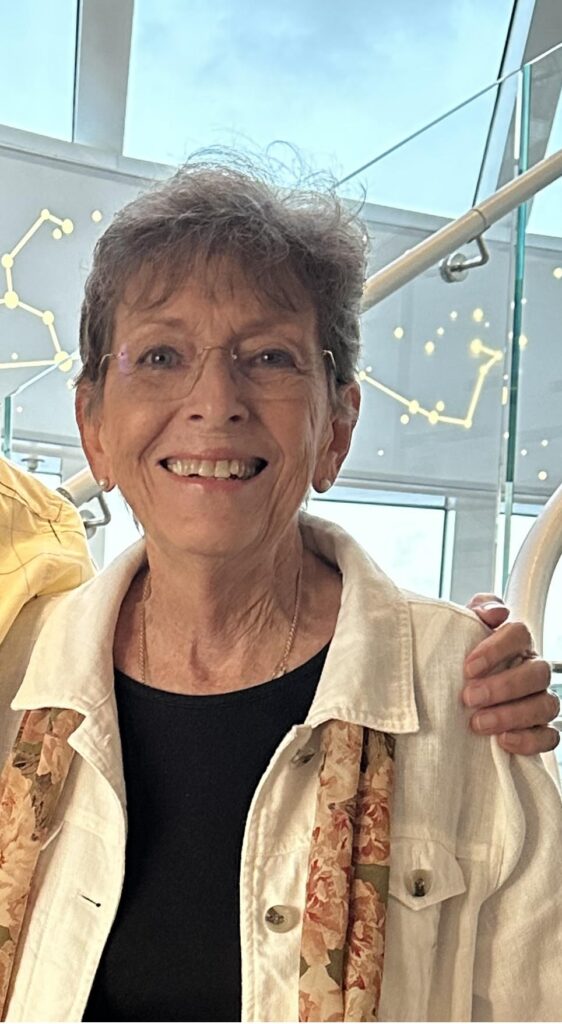
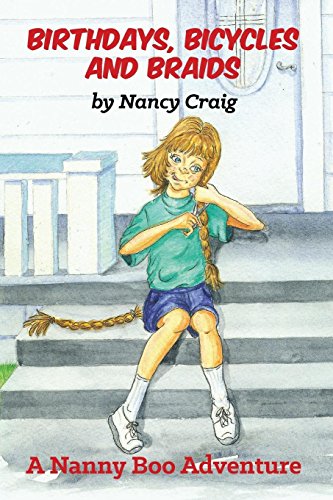
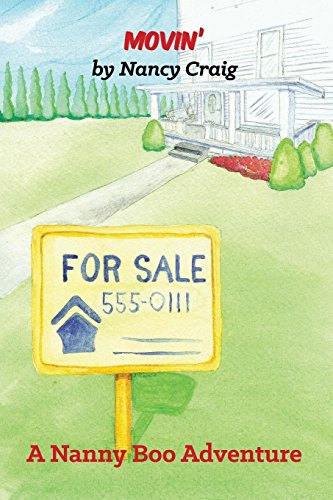
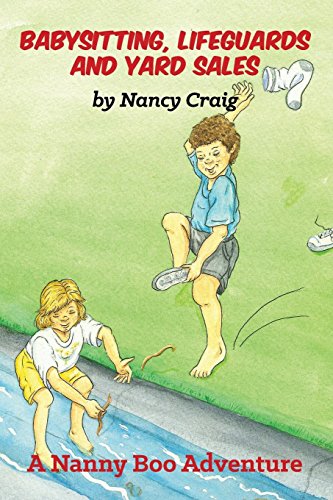
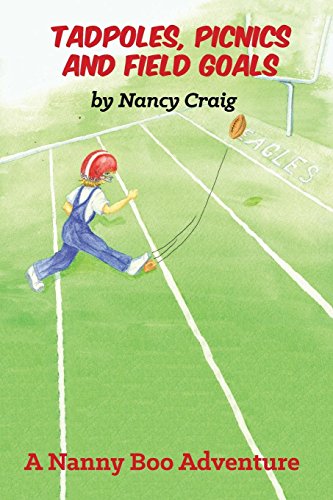
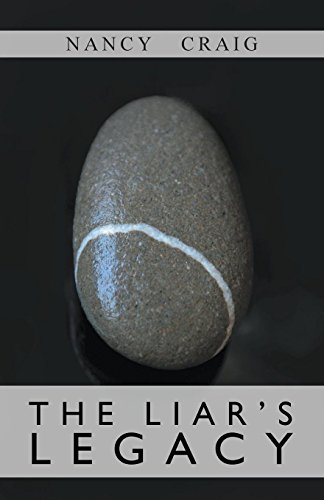
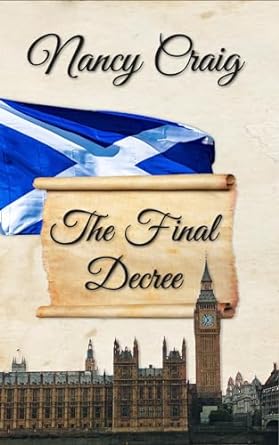
You are an inspiration to all that know you. Thank you for sharing your talents. Keep up the good work. I enjoyed your interview!
Interesting questions and answers produced an excellent interview of a very talented author.